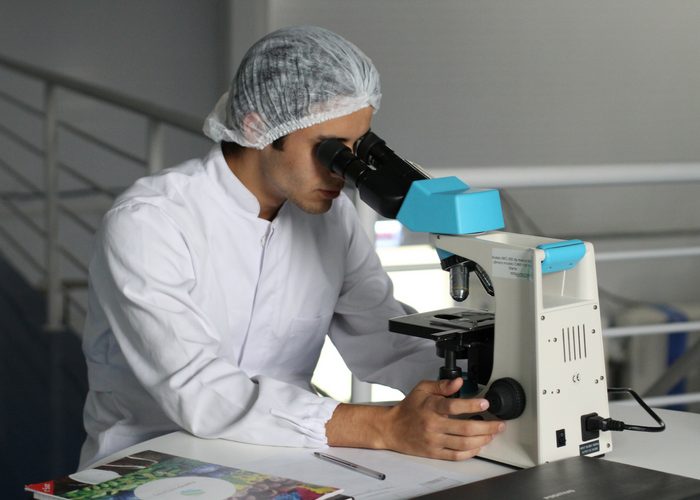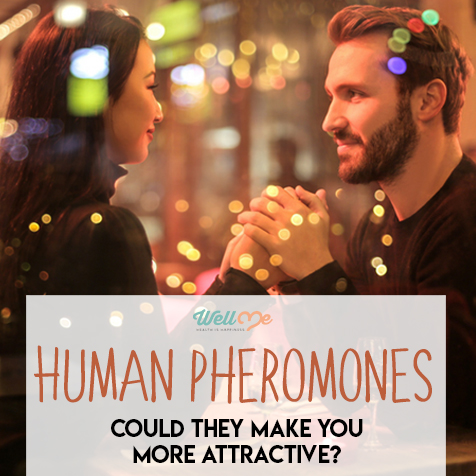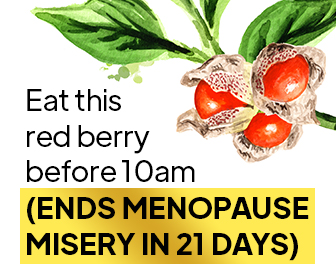You see someone across the room. They catch your eye, smile at you, and walk over to say hello. As they draw near, something happens to you. Your heart skips a beat, as they say. You feel it in an instant. You’re undeniably, unashamedly attracted to this person. You can’t help it, but why? It could be human pheromones.
Attraction is hard to explain but scientists have tried their hardest to do just that. Some experts believe that human pheromones are the reason that people are attracted to one another. However, this topic is one that causes quite a lot of controversy. Here’s what you need to know about human pheromones and the research behind them.
What Are Pheromones, Anyway?

You’ve likely heard a great deal about human pheromones in recent years. You can find a lot of articles detailing what these hormones are online. However, much of what you find out there is inaccurate and could be misleading. So, let’s take a moment to deal with the burning question: What are pheromones, anyway?
Despite their wide popularity, the origin of the term “pheromone” is more recent than you might expect. Experts Peter Karlson and Martin Lüscher first came up with the word back in 1959.[1] The term describes chemical signals in hormones, which organisms from the same species release to one another. According to the original theory, the signals bring out certain behaviors in these organisms, such as the urge to have sexual intercourse.
While most people tend to associate pheromones with sex, these chemicals have the ability to induce a wide range of behaviors. In the animal and plant world, they can be used as a warning, to mark territory, and to create a trail that other members of the species can follow.
Experts also believe that some species use pheromones to transmit information to one another. For example, this information might include their identity and where their territory is. Since many species are unable to exchange this information verbally, experts believe that they use hormones to gain an understanding of one another.
Needless to say, there’s a lot of research into the role hormones play in other species. However, it’s still not 100% clear whether these hormones behave the same way in the human world. Do pheromones work the same way in humans as animals and plants? And, if so, how do pheromones work to increase our reproduction. These are just a couple of the questions that researchers are currently trying to answer.
Quick Facts About Human Pheromones

If you’re completely new to the world of human pheromones, you might be wondering what it’s all about. You’ve heard the rumors already but let’s take a moment to deal with the facts. With that in mind, here are just some of the quick facts about pheromones you should know:
- Male sweat makes female hormones rise.[2] One study found that a chemical found in sweat can ramp up female arousal levels.
- Animals and plants also release pheromones. There is research to suggest that all types of organisms could excrete hormones which contain information.
- It’s not all about sex! Many researchers believe that pheromones could transmit information between members of the same species relating to identity, territory, and potential dangers.
- The term “pheromone” is actually a relatively new one. Experts first began using this particular word in 1959 when the majority of the research in this area began.
Do Humans Have Pheromones?

It’s a hot topic. While you might hear about them in the press, the jury is still out as to whether human pheromones exist or not. Of course, there are no doubts about how attraction works. We have all experienced the physical symptoms of attraction. Your skin may flush red, your heartbeat races, and you may find yourself short of breath.
The body responds to attraction physically, mentally, and, of course, emotionally. That’s plain to see. However, the question is whether this attraction is due to hormones in the body? Do humans have pheromones? And, if they do, how do pheromones work?
Many experts question the very presence of human pheromones. There are two schools of thought here. One is that these hormones do exist and that they are the root of human attraction. The other is that, while people have all manner of hormones, there is not a single type that creates feelings of attraction. Right now, there is not a great wealth of evidence for either side of this argument. However, there has been some initial research which suggests that pheromones are real.
Despite the lack of research in this area, many people believe that human pheromones exist. Advertising and the media often report on pheromones and promote the idea that they can make you more attractive. This rhetoric could be dangerous as there is no basis for that theory. While pheromones may play a role in attraction, we have no evidence that you can manipulate them or use them to increase your chances of being attractive to a certain person.
The Difference Between Male and Female Pheromones

Have you wondered whether there’s a difference between male and female pheromones? It’s no great secret that men and women have different types of hormones and different levels of hormones in their body. When it comes to human pheromones – the hormones which some experts believe are responsible for attraction – the same is true.
Androstenone hormones are specific to men. The theory is that this particular hormone is sent out via sweat which causes women’s attraction levels to rise. The same theory suggests that women have different hormones (or female pheromones) which can arouse men. The online world is rife with theories about what these hormones are and what they do. However, you should keep in mind that much of what we know so far remains a mystery.
What Do The Experts Have To Say?

Research published in the Journal of Psychoneuroendocrinology found a link between inhaling the human pheromone androstadienone and the response to emotional stimuli.[3] During the study, the researchers introduced participants to the hormone by letting them inhale particles in human sweat. After that, they showed the group emotional information and monitored their responses.
The results showed that participants paid more attention to the information after they had inhaled the hormone. That could mean that the hormone – or pheromone – may have roused attraction in them and made them more receptive on an emotional level. It’s important to note that there may have been other reasons for this result, such as the participants’ individual differences.
Another study suggests that women’s sexual arousal levels rise when they come into contact with androstenone.[4] The hormone – which men produce and excrete through their sweat – could send out sexual signals to women. Interestingly enough, the researchers found that this effect only happened when the female participants were close to their peak ovulation time. The result could mean that the human pheromone boosts women’s libidos at key times to help with reproduction.
While these studies are, indeed, interesting, experts need more information before they can determine whether pheromones exist. It is clear that there are hormones relating to sex and ovulation, however, nobody can be sure of what they do.
Not All The Research Is Conclusive!
While there’s some evidence to suggest that human pheromones exist, not all of it is conclusive. One study looked at the specific hormones that some experts associate with attractiveness.[5] As part of the research, women were given access to “attractive” men and exposed to their version of pheromones at the same time. The study also tested men’s reaction to “attractive” women and female pheromones.
The same study found that there was no significant reaction to these stimuli. This suggests that the so-called pheromones had no impact on each participant’s attraction level. The takeaway here is that human attraction is a complex area which is hard to understand. It could be that male and female pheromones play a role in whether or not we find certain people attractive but this study does not support that idea.
How Do Pheromones Work?

Whether or not pheromones are the cause of attraction, there’s one thing that most experts agree on. That is the fact that a large part of human attraction comes down to sweat. There is a signal in human sweat that makes some people attracted to them. Whether that is a hormone (pheromone) or something more mysterious, we can’t be sure at this stage.
Asking the question “how do pheromones work?”, isn’t likely to get you a straight answer. The fact of the matter is that even the most seasoned experts don’t know. When you’re physically attracted to another person, you will notice a change in your body. Hormones doubtless have something to do with this particular reaction. However, the effect that those hormones have on others, i.e. whether you can send signals to the other person, is entirely unclear.
Does Pheromone Cologne Make You More Attractive?

The short answer is no. You’ve seen the adverts on TV. Pheromone cologne and pheromone spray brands claim that you can boost your attractiveness in minutes. It sounds too good to be true and that’s probably because it is. While some experts think that natural pheromones play a role in attraction, there is no evidence to suggest that sprays and colognes can mimic that effect.
According to The Smell Report, published in the Social Issues Research Centre online, pheromone-based products are unlikely to have the effect that they promise.[6] The report notes that even if the claims were true, the effect would be hard to measure. The reason is that the pheromones in the product would still have to compete with natural pheromones from other men.
There is no research into what type of pheromone makes men or women the most attractive. That means that pheromone cologne or other products would not be able to increase how attractive a person happens to be. Spending money on these products is a waste.
Conclusion: Tips For Understanding Pheromones

At the end of the day, the effect human pheromones may or may not have on people should not impact your life. Attraction is a mysterious area and, for now, perhaps it should stay that way. Trying to manipulate nature and “trick” someone into finding you attractive is never going to work in your favor. However, educating yourself on the many theories here is a smart move. So, here are some tips that will help you gain a deeper understanding of this topic:
Pay close attention to your body
What happens to your body when you feel attracted to someone? The next time you see a person you find attractive, take a moment to consider the changes in your physiology. Note that you are short of breath or that your heart rate has increased, for example. These changes are the physical signs that there has been a chemical change inside your body.
Consider your emotions
Feeling all loved up? Or, might you say, emotional? One of the things that much of the research here overlooks is the emotional connection we have to attraction. Fancying another person is not just a physical reaction. When we connect with someone emotionally, it could be that we find them more attractive than we otherwise would.
Understand different perspectives
Of course, there are many different perspectives when it comes to male and female pheromones, and so you should take what you read with a pinch of salt. Now that you have an understanding of the various scientific views, you should see that this is a complex area. Weigh up the scientific perspectives before deciding for yourself whether you believe that human pheromones are real.
Be wary of pheromone products
From pheromone spray to pheromone cologne, there are loads of products out there that promise to increase your attractiveness. Since there is no solid evidence to back up the claims that these products make, you might want to be wary of them. The last thing you want to do is waste your money on products that simply cannot deliver what they promise.

Conclusion
Sure, you might read a lot about human pheromones (we all do!), but it’s important to keep an open mind when it comes to this topic. Right now, we don’t have all the information that we need. It could be worth staying up to date with the latest studies and research to find out new information about pheromones. Watch this space!
Want to learn more about hormones and the role they play in the human body? Try this article next!
References
- [1] https://www.apa.org/monitor/oct02/othername
- [2] https://www.berkeley.edu/news/media/releases/2007/02/06_sweat.shtml
- [3] https://www.sciencedirect.com/science/article/pii/S0306453016307521
- [4] https://www.sciencedirect.com/science/article/pii/S2090123211000397
- [5] http://www.sciencemag.org/news/2017/03/do-human-pheromones-actually-exist
- [6] http://www.sirc.org/publik/smell_attract.html








